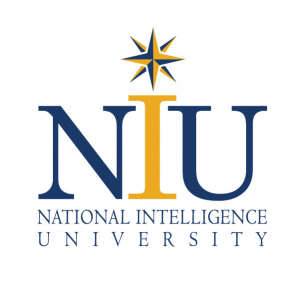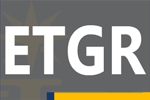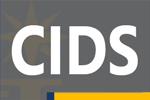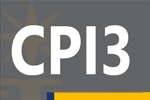Anthony G. Oettinger School of Science and Technology Intelligence
SSTI
The National Intelligence University Anthony G. Oettinger School of Science and Technology Intelligence (SSTI) prepares students for careers at the forefront of science and technology intelligence. The School of Science and Technology Intelligence offers a degree program leading to a Master of Science and Technology Intelligence (MSTI) degree. The School also offers multiple graduate Certificates in Intelligence Studies (CIS).
All School of Science and Technology Intelligence departments serve a management function regarding the oversight of at least one concentration and certificate. Each department offers electives available to the entire student body on a priority basis. Department Chairs and teaching faculty are responsible for the quality, development, and execution of their assigned concentrations, elective courses, and certificate topics. Students with questions regarding their concentration or certificate are encouraged to speak to their Department Chair.
SSTI is aligned into three interdisciplinary departments
- Emerging Technologies and Geostrategic Resources (ETGR) Department
- Counterproliferation and Information and Influence Intelligence (CPI3) Department
- Cyber Intelligence and Data Science in Intelligence (CIDS) Department
Emerging Technologies and Geostrategic Resources (ETGR) Department
The Department Chair and faculty execute and oversee the Emerging Technologies and Geostrategic Resource Concentration and certificate.

Cyber Intelligence and Data Science in Intelligence (CIDS) Department
The Department Chair and faculty execute and oversee the Cyber Intelligence (CYI) Concentration and certificate.
The Department Chair and faculty execute and oversee the Data Science in Intelligence (DSI) Concentration and certificate.

Counterproliferation and Information and Influence Intelligence (CPI3) Department
The Department Chair and faculty execute and Oversee the Counterproliferation (CP) Concentration and certificate.
The Department Chair and faculty execute and oversee the Information and Influence Intelligence (I3) Concentration and certificate.
About Anthony G. Oettinger
Anthony G. Oettinger was a Gordon McKay Research Professor of Applied Mathematics and Research Professor of Information Resources Policy, Emeritus at Harvard University, whose faculty he joined in 1954. He belonged to the Council on Foreign Relations. He was a emeritus member and founding chairman of the U.S. Director of National Intelligence’s Intelligence Science Board. He also served on the U.S. Director of Central Intelligence’s Advanced Technology Panel. He was an ex officio member of the U.S. Defense Department’s Defense Science Board. From 1994 to 2010, he chaired the Board of Visitors of the U.S. National Defense Intelligence College, having joined that Board in 1986. In 2009, he was awarded the National Intelligence Medallion and a commendation letter from President Barack Obama.
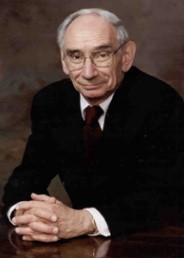
Dr. Oettinger, was a pioneer in the early development of computer code and artificial intelligence (AI) and wrote the first AI programs to incorporate learning. In 1951, Oettinger developed the “response learning programme” and “shopping programme” for the University of Cambridge EDSAC computer. Oettinger was considerably influenced by Alan Turing’s views on machine learning, and suggested that the shopping program, which simulated the behavior of “a small child sent on a shopping tour,” could pass a version of the Turing test.
He founded the Harvard Program on Information Resources Policy in 1972 to create useful knowledge, both competent and impartial, on controversial information matters. To this aim, the Program follows what still seems to be a unique process, with many ingredients.
In the White House, Professor Oettinger was a consultant to the President’s Foreign Intelligence Advisory Board (1981-90), the National Security Council (1975-81), for which he received a commendation letter in 1977 from President Gerald Ford and the Office of Science and Technology (1961-73). He chaired the Massachusetts Cable Television Commission (1975-79) under Democratic Governor Michael Dukakis, having been on it from its start in 1972 under Republican Governor Francis Sargent. He founded the Computer Science and Engineering Board of the National Academy of Sciences and chaired it from 1967 to 1973. He was also on the Research Advisory Board of the Committee for Economic Development (1975-79) and a consultant to Arthur D. Little, Inc. (1956-80), as well as on the Scientific Advisory Group of the Defense Communications Agency (1979-90; now DISA, the Defense Information Systems Agency), on the Command, Control, Communications, and Intelligence Panel of the Naval Research Advisory Committee (1978-82), and a member of the Information Warfare panel of the Naval Studies Board of the National Academy of Sciences (1993-1995). From 1963 to 1967 he was an adviser to NASA’s Apollo moon-landing program.
His former students follow not only academic but also business, military, legal, and other careers.
History
Recognizing the importance of the use of science and technology in intelligence, while understanding the need for cutting edge research and instruction, scientists and engineers at the National Intelligence University established the Center for Science and Technology Intelligence. This set the stage for the founding of the School of Science and Technology Intelligence to advance instruction and research in S&T intelligence collection, analysis, and dissemination. The School of Science and Technology Intelligence was chartered on November 1, 2010. The Department of Education and Congress issued degree-granting authority in 2012.
During World War II, the Office of Strategic Services (OSS) was the first to use science and technology as part of the intelligence process. The concept of employing science and technology in intelligence has since changed dramatically. Inspired by Cold War fears and encouraged by prominent government advisory commissions, the use of science and technology quickly moved to a position of great importance among Intelligence Community activities.
Time Flies Like an Arrow, Fruit Flies like bananas.
